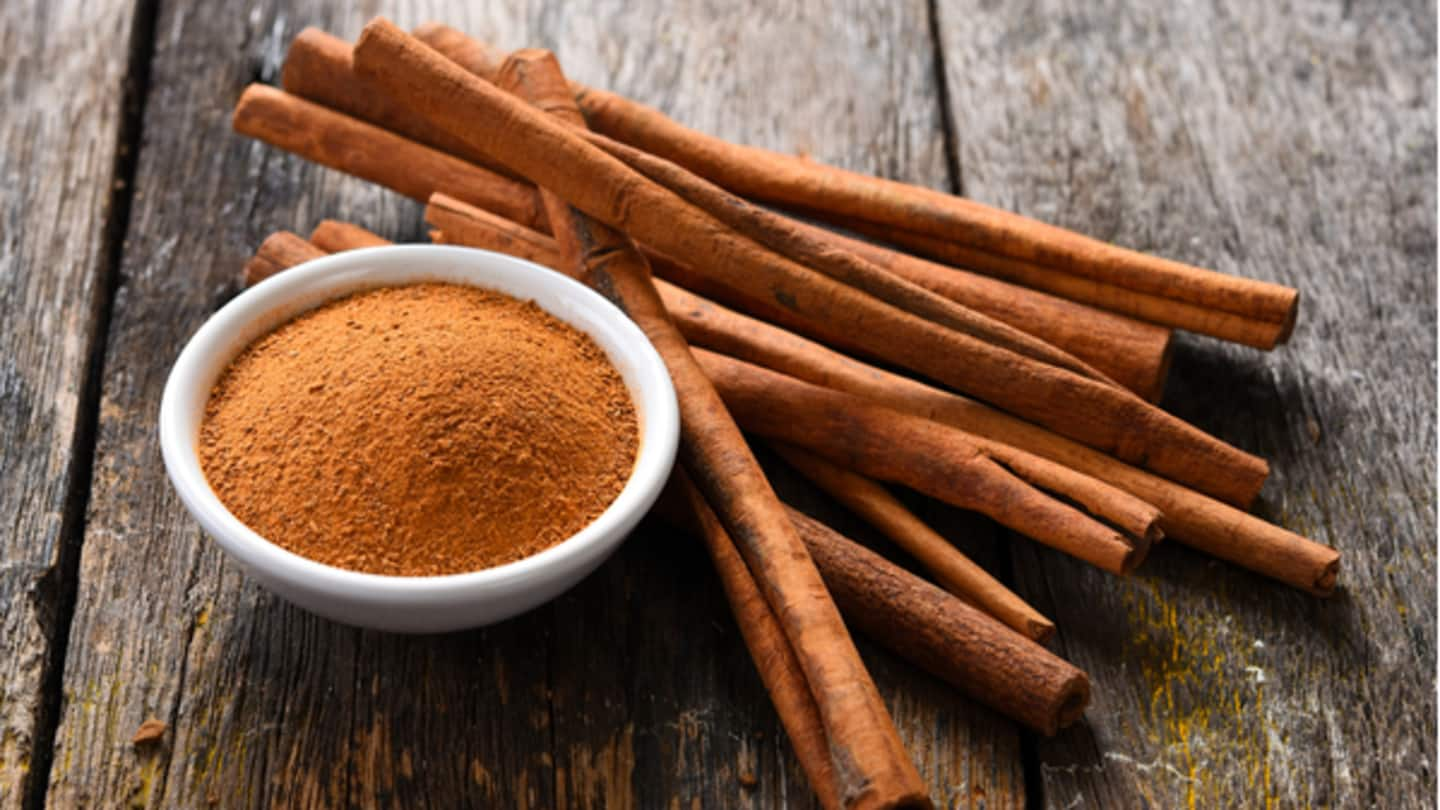
#HealthBytes: Reasons why cinnamon is considered an amazing spice
What's the story
Known as dalchini in India, cinnamon is an essential flavor spice in our kitchens. It has been used in home remedies prescribed by the traditional Ayurvedic and Chinese medicine for centuries; the aromatic spice is believed to have important medicinal properties. Modern science has further confirmed these beliefs. Here are some of the benefits offered by cinnamon.
Diabetes
Can lower fasting blood sugar levels by 30%
Studies have confirmed the anti-diabetic effects of cinnamon, showing that it can lower fasting blood sugar levels by 29%. Cinnamon can decrease the amount of glucose that enters your bloodstream after a meal, by interfering with digestive enzymes, that slows the breakdown of carbohydrates in your digestive tract. Also, a compound in cinnamon can mimic insulin that can improve glucose uptake of your cells.
Digestion
Can fix your gastrointestinal issues
Cinnamon extract has been used to get relief from gastrointestinal problems, for centuries now. It improves digestion and absorption because it is an anti-bacterial that heals infections in the GI track. Even in traditional Ayurvedic medicine, cinnamon bark oil is used for treating flatulence and digestive imbalance. To cure digestive symptoms, cinnamon can be added to a hot drink, like tea.
Infections
Anti-microbial effects may prevent tooth decay, reduce bad breath
Notably, cinnamon has anti-bacterial and anti-fungal properties. One of the main active components of cinnamon, Cinnamaldehyde, can help fight various infections. Cinnamon oil has also shown to treat respiratory tract infections caused by fungi, effectively. It can prevent the growth of certain bacteria, like listeria and salmonella. The anti-microbial effects of cinnamon may also prevent tooth decay and reduce bad breath.
Cholesterol
Improves the level of good cholesterol
There is some existing scientific evidence which shows that cinnamon may help lower LDL (bad cholesterol) levels and improve HDL (good cholesterol) levels. One particular study observed that a cinnamon dose of just 120 mg per day can have these effects. The compound, Cinnamate, might decrease the activity of an enzyme that makes cholesterol, thus reducing the amount of fatty acids in the blood.
Acne
Prevents acne-causing bacterial growth, smoothens skin, scrub for rough skin
Additionally, cinnamon can also be used for acne treatment. Mix some cinnamon powder with rose water and apply. Leave it on for 10 minutes, wash off and pat dry. Cinnamon not only tightens your pores and makes your skin smooth, its anti-microbial properties prevent the growth of acne-causing bacteria. Antioxidant-rich cinnamon with honey can also be used as a scrub for rough skin.